'I think wine is in my blood'
- Published
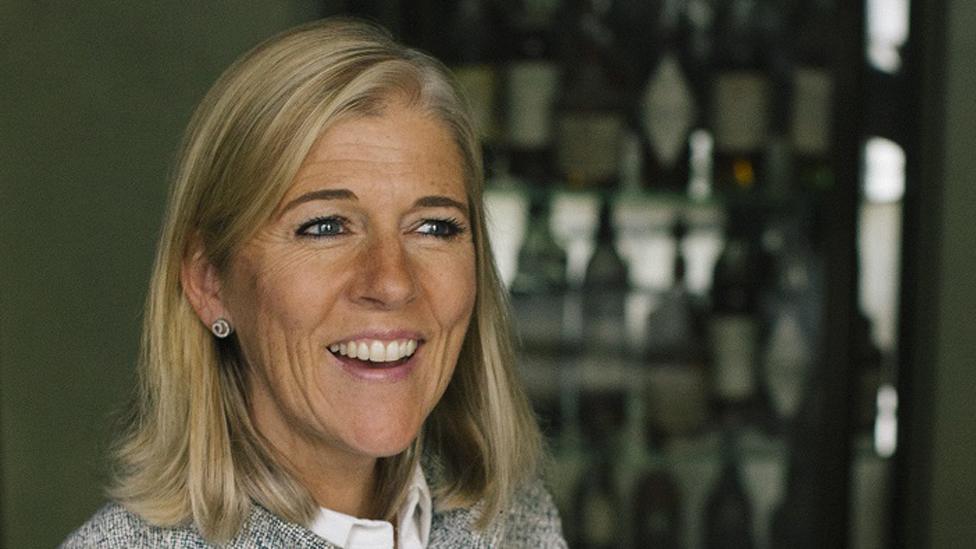
Lizzy Rudd first joined the family business back in the 1980s
The BBC's weekly The Boss series profiles different business leaders from around the world. This week we speak to Lizzy Rudd, chairman of UK wine merchant Berry Bros and Rudd (BBR).
"I think wine is in my blood," says Lizzy Rudd.
"When dad came home [at night] he never talked about work, so I must have become interested through osmosis."
Ms Rudd, 52, has since 2017 been chairman of BBR, the UK's oldest wine merchant. The company is owned between the Rudd and the Berry families.
Based in the upmarket St James's area of central London, the business has had a shop there since 1698.
A company with an undeniably posh reputation, around it are numerous private members clubs, two of the UK's most exclusive cigar shops, and a store where you can buy a made-to-measure shotgun ahead of the start of the grouse shooting season.
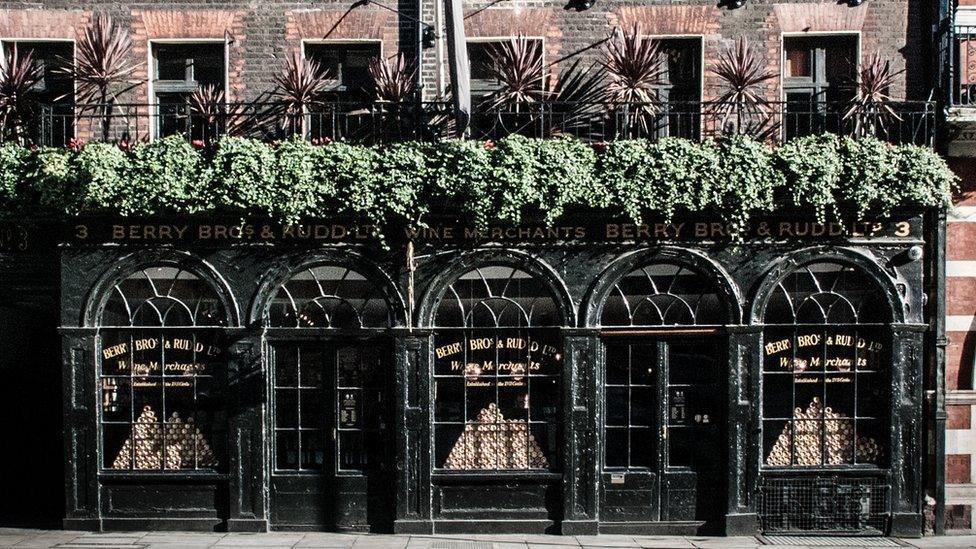
The business has been based in St James's, London, since 1698
In Ms Rudd's grand but surprisingly cosy office a portrait of her father John, chairman until 2000, dominates one of the walls.
It would be easy to imagine that BBR is a bastion of male-led tradition, but the original company was actually started by a woman. And Ms Rudd is the firm's second female chairman.
"The business was founded in 1698 by the Widow Bourne," she says.
"We hardly know anything about her, only that she set up the shop as a grocers, importing tea, coffee and exotic spices."
The company was selling wine at least by the start of the 19th Century, with its name changing to Berry Bros in the 1840s, and then to Berry Bros and Rudd a century later in the 1940s.
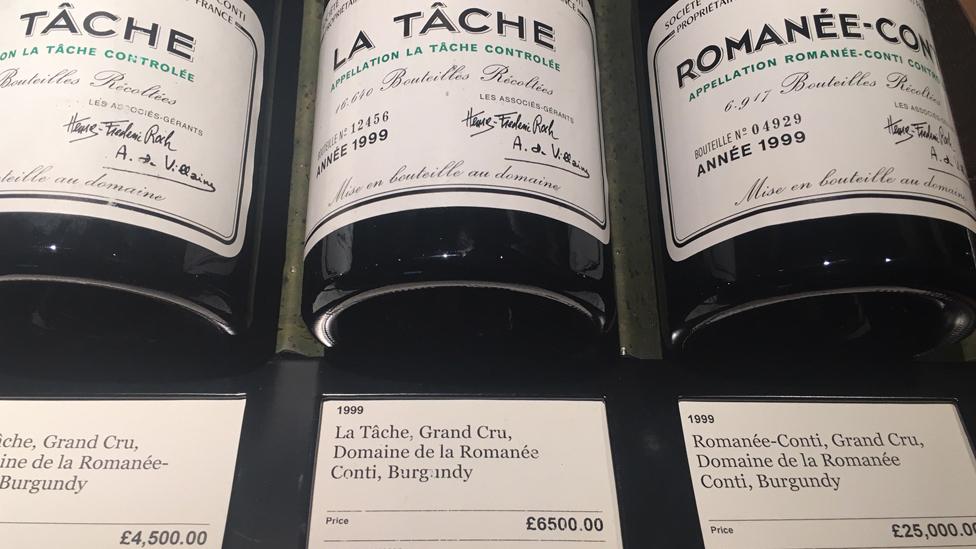
BBR can help you spend a fortune on wine, such as a bottle of Romanee-Conti red burgundy for £25,000
After World War Two, Lizzy Rudd's grandmother Ethel Rudd became chairman. Had it always been an ambition for her to follow in her nana's footsteps?
"No, I never assumed that I'd become chairman, there was never any pressure or expectation that I'd join the business," says Ms Rudd.
When Ms Rudd first joined the family firm in the late 1980s it wasn't in wine, but in spirits. Specifically she first worked in the marketing department for BBR's then whisky brand Cutty Sark.
A massive seller, particularly in the 1960s and 1970s, that one product used to account for more than two thirds of BBR's annual revenues.
Almost a decade after Ms Rudd joined the family business she left to concentrate on bringing up her three children. In 2005 she returned as deputy chairman.
Today BBR has 400 employees, and an annual turnover of £187m. In addition to its London headquarters, the company has two giant warehouses in Hampshire, where it stores millions of bottles of wine.
What did it take for Ms Rudd to make the step up to the chairman position? "You've got to be a good steward of the business, to maintain what makes it tick," she says.
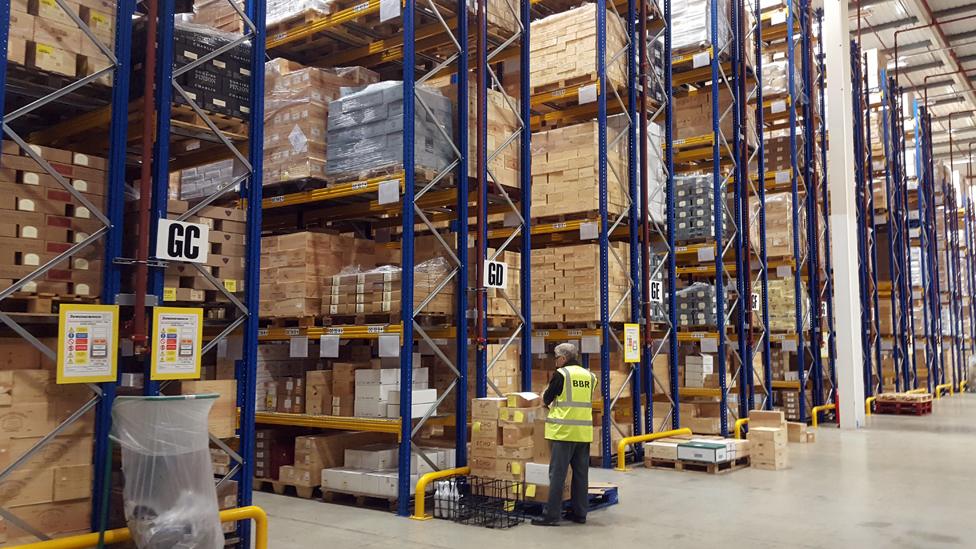
The company has two vast warehouses in Hampshire
But what does make a 321-year-old business tick, and how has it survived for so long?
"The world's changing so quickly, how people buy, how people drink, so we need to keep moving and keep up with consumer trends."
In fact, BBR's business model has changed markedly over the past decade. In 2010 Cutty Sark was sold, so it could focus more on the wine side of the business.
Nowadays wine makes up 90% of sales with spirits at 10%. This plays to the company's strengths according to Arabella Mileham, retail editor of the Drinks Business.
"Even people who don't know much about the wine industry would recognise their name," says Ms Mileham.
"They have huge brand recognition. The first thing you think of when you mention their name is that historic shop front [on St James's Street]."
But Ms Mileham points out that there is substance behind the old-fashioned image.
"They wouldn't have lasted so long if it hadn't been for the quality," she says. "You don't get that reputation without something to back it. They've also got a very good team of wine buyers, which is important."
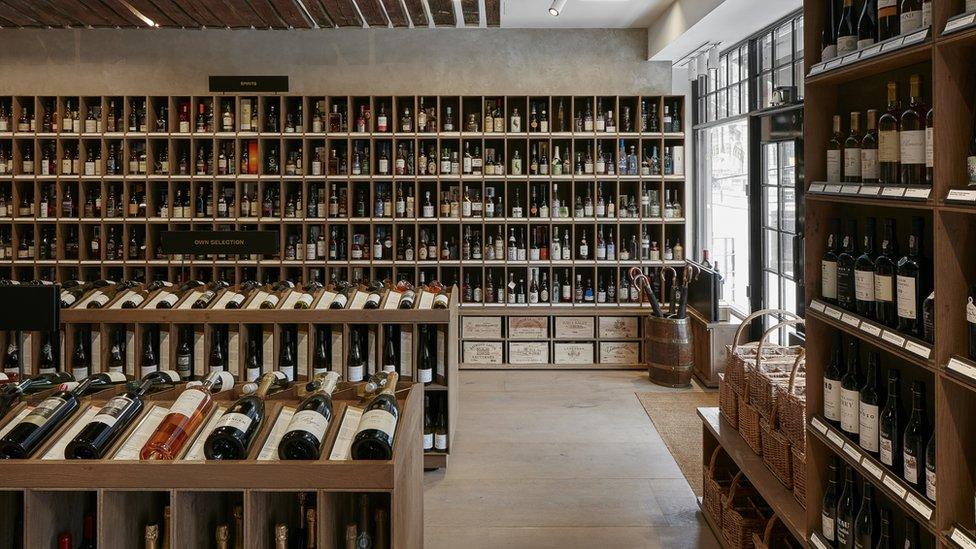
BBR is the oldest wine merchant in the UK
And while BBR will sell you a wine for £25,000 - for just one bottle - its cheapest costs less than £6.
As the company looks ahead to its next three centuries, Ms Rudd says that Asian markets are becoming increasingly important. This is reflected in the fact that BBR now has shops in Singapore, Hong Kong and Japan.
But is it ever difficult to lead a business owned by two different families? Ms Rudd says everyone gets along.
"There are 56 shareholders who are mostly Berrys and Rudds... [but] the voting doesn't work on the basis of shares, we make the decisions together."
But what happens when disagreements arise?
"Although our personalities are different, we're generally aligned," she says. "A lot of us have grown up together, and we're sort of like cousins.
"We do have robust discussions, but it's not like some family relationships where there can be tension - these conversations might seem to outsiders like arguments but they're not at all."
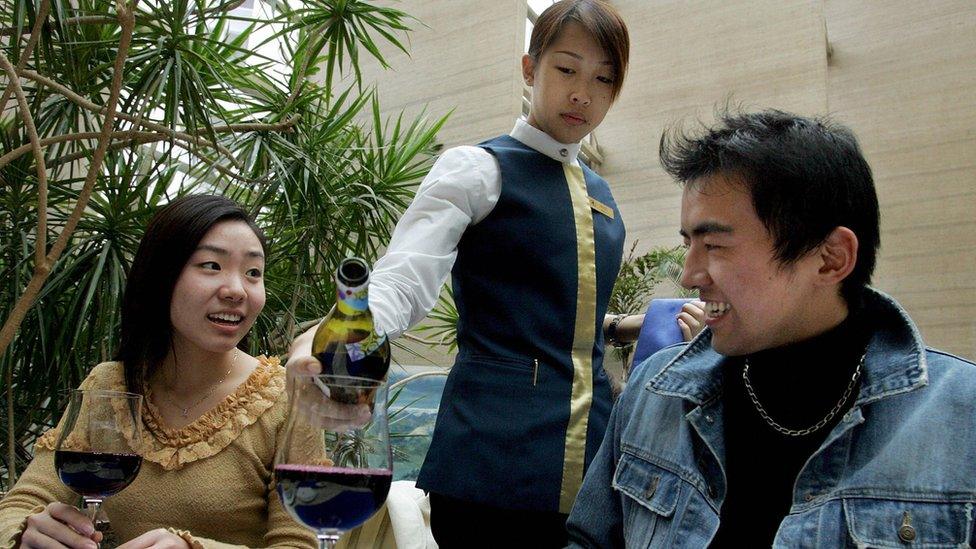
BBR is increasingly targeting the Chinese market, which has seen a big increase in interest in wine drinking
As with every family business the question of succession crops up. Do any of her children want to follow in her footsteps?
"None of them are in the business at the moment, but they're all interested in wine and spirits.
"We've had two family days with the next generations of Berrys and Rudds. Last time there were around 50-60, and we teach them communications, how to read a balance sheet, practical skills. We want to encourage them to have the business on the radar."
So how long does Ms Rudd intend to stay at the helm?
"It's important to step down as and when there is someone in the next generation ready to take over, as opposed to staying on until I'm ancient which is a common feature in family business, and indeed in my own family previously.
"I want to be here long enough to make a difference, but in order to keep things moving in the business and up to date, we need to allow the younger generation to step in and get going as soon as they're ready."
For now though Ms Rudd is in the driving seat, and maybe in 20 years' time her portrait will be hanging on the wall.